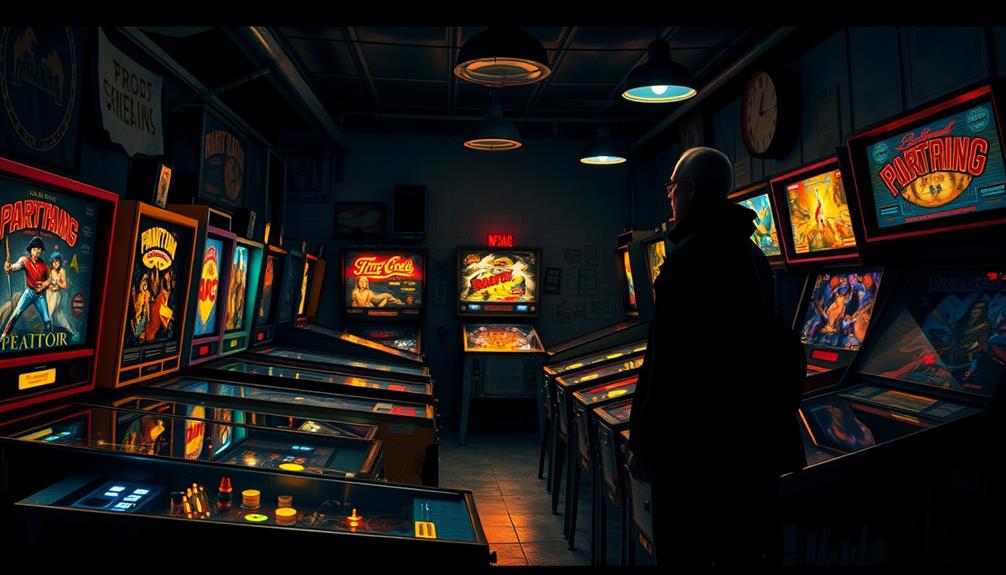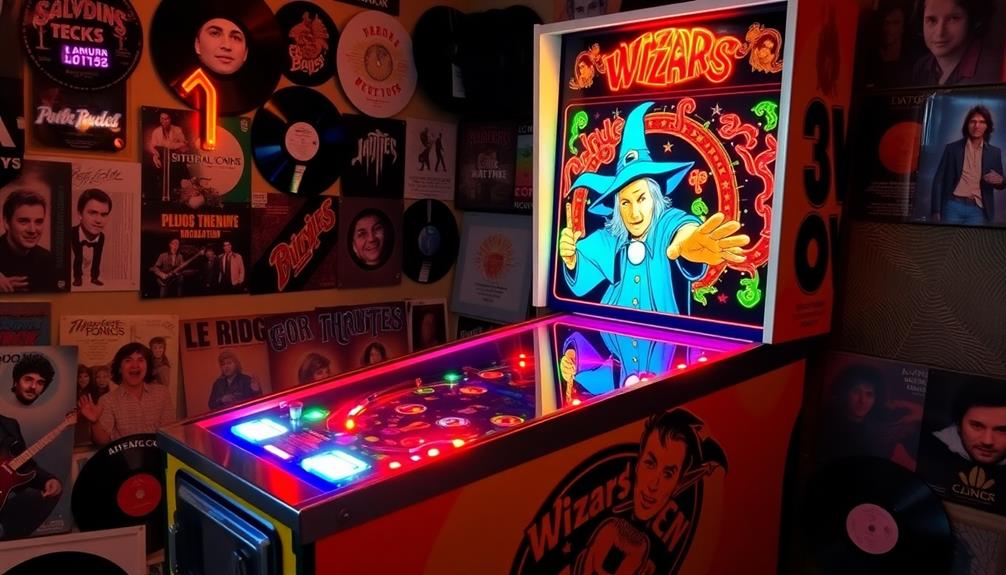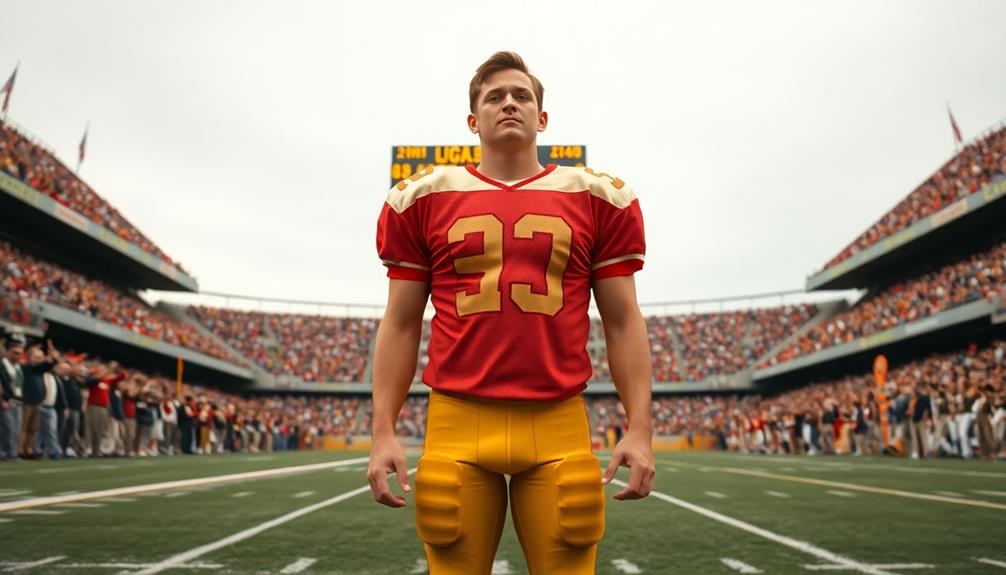Pinball machines are not illegal in many locations today, but some cities still uphold outdated restrictions from the past. These bans were initially imposed due to moral concerns related to gambling and organized crime, particularly during the 1940s. Even though the legal landscape evolved significantly after the 1970s, easing many restrictions, there are still jurisdictions that impose limits on ownership and usage. For example, certain areas may place age restrictions on pinball participation. If you’re interested in learning about the varying laws across different locations, you’ll come across interesting insights and updates. When pinball machines were legalized in the 1970s, it signified a pivotal moment in many jurisdictions. However, some places still have lingering regulations that can impact the availability and enjoyment of these games. It’s crucial to stay informed about local laws and regulations if you’re a pinball enthusiast, as they can differ greatly from one place to another. If you’re curious about why pinball machines are banned in some places, it often stems from the perceived connection between gambling and pinball, which was once viewed as a game of chance rather than skill. Additionally, concerns about noise and disruption in specific areas have resulted in restrictions on the use of pinball machines. Understanding the history and rationale behind these bans can offer valuable context for enthusiasts and players.
Key Takeaways
- Pinball machines were historically banned in several cities due to associations with gambling and moral panic, especially in the 1940s.
- Legal challenges in the 1970s led to the classification of pinball as a skill game, changing its public perception.
- New York City's ban on pinball machines was lifted in 1976 after a successful demonstration proving skill-based play.
- Currently, pinball machines are widely accepted in arcades and bars across the U.S., though some restrictions remain in certain jurisdictions.
- Specific local laws, like those in Connecticut and Baltimore County, still impose limitations on pinball machine ownership and player age.

Merchant Ambassador Retro Arcade Electronic: Pinball – Tabletop Game, Vibrating Bumpers, LED Lights, Sound Effects, 1 Player, Ages 6+
Just like the large arcade version.
As an affiliate, we earn on qualifying purchases.
As an affiliate, we earn on qualifying purchases.
Historical Context of Pinball
Evolving from simple tabletop games like bagatelle in the 18th century, pinball machines have a rich history marked by controversy and cultural shifts. By 1931, these devices transformed into coin-operated machines, quickly becoming associated with gambling. The emotional responses and societal pressures surrounding pinball can be likened to the dynamics seen in individuals with BPD relationships, where intense reactions and rapid shifts in perception play a significant role.
In the 1940s, pinball faced significant backlash, with New York City and other urban centers deeming it a moral threat. Concerns about juvenile delinquency and organized crime fueled widespread bans, and Mayor Fiorello La Guardia spearheaded a vigorous anti-pinball campaign in 1942. His efforts led to the confiscation and public destruction of thousands of machines.
The historical context reveals that pinball was often viewed through a lens of fear, equating it with vice and crime. However, the tide began to turn in the 1970s when a vital California Supreme Court ruling declared pinball a skill game rather than purely a game of chance. This pivotal moment shifted public perception and laid the groundwork for legal changes.

Legends Pinball Micro, Arcade Machine Console, Classic Retro Video Games, 50 Built in Licensed Pinball Games, Space Invaders, Bubble Bobble,Time Machine, WiFi, HDMI, Bluetooth
Compact Home Digital Pinball Platform featuring authentic flippers and nudges. Easy set up.
As an affiliate, we earn on qualifying purchases.
As an affiliate, we earn on qualifying purchases.
Legal Bans on Pinball Machines
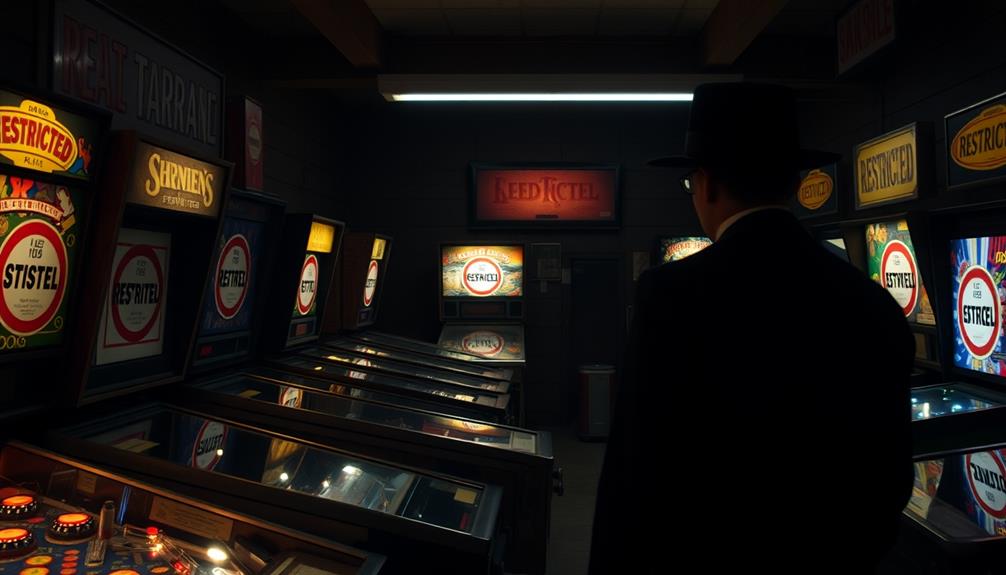
The legal landscape surrounding pinball machines has been marked by significant fluctuations, particularly in the wake of the bans initiated in the 1940s. During this era, cities like New York City imposed strict bans, associating pinball with gambling and organized crime. In 1942, Mayor Fiorello LaGuardia famously confiscated over 2,000 machines, reflecting a widespread moral panic over these games.
This period of uncertainty paralleled financial trends, as many individuals grappled with their own budgeting and investment challenges during tough economic times. Understanding the concept of budgeting for entertainment can help individuals make informed choices about leisure spending, including pinball machine ownership.
However, as time progressed, legal challenges began to emerge. In the 1970s, a pivotal California Supreme Court decision classified pinball as a game of skill rather than chance, paving the way for the gradual repeal of these bans. By 1976, the ban in New York City was lifted, thanks in part to a demonstration by top player Roger Sharpe, who showcased the skill involved in playing pinball.
Despite this progress, restrictions still exist in various jurisdictions. Some states and cities continue to impose laws that limit the ownership and operation of pinball machines, creating a patchwork of regulations.

24 Pack Handheld Pinball Game for Kids Party Favors Goodie Bags Stuffers Return Gifts for Birthday Classroom Rewards Bulk and Prizes
Package content: Our package includes 24 pieces of finger pinball games (Random color) for the young to use…
As an affiliate, we earn on qualifying purchases.
As an affiliate, we earn on qualifying purchases.
Cultural Perception and Stigma

Throughout the mid-20th century, pinball machines faced significant cultural stigma, often viewed as symbols of juvenile delinquency and moral decay. The perception that these games were linked to gambling fueled public opposition and led to legal bans in many cities. Mayor Fiorello LaGuardia famously spearheaded an anti-pinball campaign, labeling them as mob-controlled devices that exploited vulnerable citizens.
| Aspect | Description |
|---|---|
| Cultural Perception | Viewed as corrupting and illegal |
| Public Opposition | Campaigns against pinball machines |
| Impact of Bans | Relegated to underground venues |
Despite the introduction of flippers in 1947, which made pinball a skill-based game, the negative stigma persisted. Media sensationalism only exacerbated the perception of pinball as a vice. This cultural view shaped the environment in which you'd find pinball, often tucked away in hidden spots rather than celebrated in the open.
However, the repeal of legal bans in the 1970s sparked a significant cultural shift, allowing pinball to emerge from the shadows and gain recognition as a legitimate form of entertainment, transforming its once tarnished image.
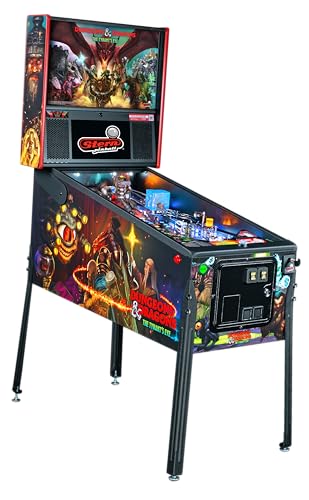
Stern Pinball Dungeons & Dragons with Insider Connected, Pro Edition Arcade Pinball Machine
Stern Pinball invites players to embark on an epic journey into the Forgotten Realms of Dungeons & Dragons:…
As an affiliate, we earn on qualifying purchases.
As an affiliate, we earn on qualifying purchases.
Changes in Legislation Over Time
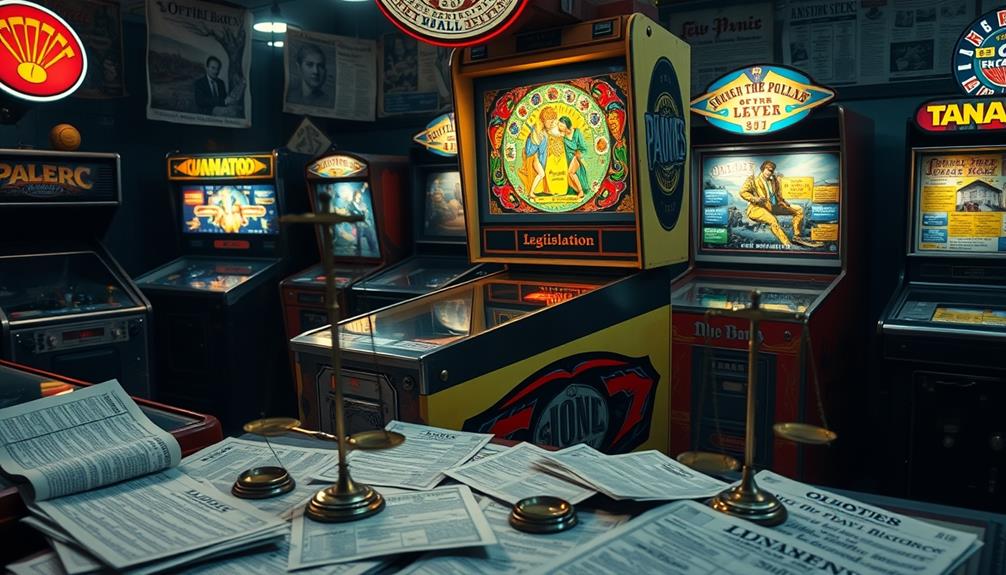
Pinball's journey through legislation highlights the shifting views on its place in society. In 1942, New York City enacted a ban on pinball machines, labeling them as illegal gambling due to moral concerns. This led to the confiscation of thousands of machines, driven by an anti-pinball campaign led by Mayor Fiorello La Guardia, who claimed it was a necessary measure to protect citizens from mob exploitation.
The controversy surrounding pinball mirrors debates in other areas, such as the evolving perceptions of energy-efficient technologies like best heat pumps, which have faced skepticism before gaining acceptance.
As time passed, perceptions began to change. By the mid-1970s, attitudes softened, culminating in a landmark ruling by the California Supreme Court, which classified pinball as a game of skill. This pivotal decision prompted various states to reconsider their bans.
In 1976, New York City lifted its ban, inspired by Roger Sharpe's demonstration of skill-based gameplay, marking a significant cultural transformation.
While many areas repealed their bans, some jurisdictions still cling to outdated laws that restrict pinball machine ownership. You might encounter regulations limiting the number of machines in arcades or prohibiting minors from owning them.
These legislation changes reflect an ongoing evolution in how society views pinball machines and their role in entertainment.
Current Status of Pinball Legality
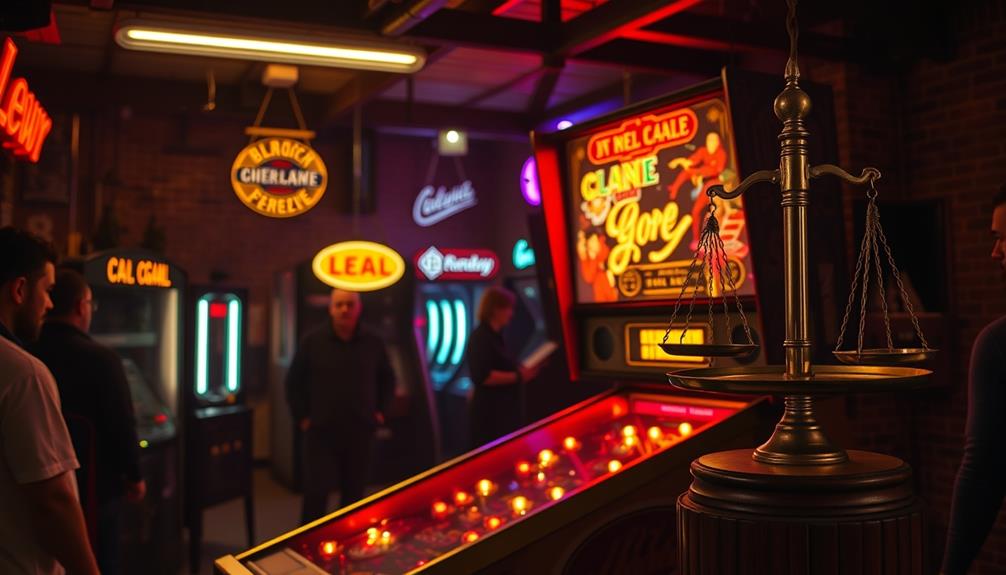
Across much of the United States, pinball machines have gained a legal foothold, transforming from symbols of controversy to accepted forms of entertainment in arcades and bars.
Since the 1970s, the legality of these machines has improved markedly, yet some American cities still impose restrictions that reflect outdated views. The evolving legal landscape mirrors changes in societal perceptions, similar to how legal processes in divorce have adapted over time to better serve individuals.
Here are four notable points regarding the current status of pinball legality:
- Variations in Restrictions: In Connecticut, arcades are limited to a maximum of four pinball machines, while Baltimore County prohibits individuals under 16 from playing them.
- Outdated Laws: Locations like Alameda maintain bans on pinball machines despite being surrounded by casinos, showcasing the remnants of historical legislation.
- Antiquated Ordinances: Minneapolis has specific rules regarding the construction materials of pinball machines, highlighting the long-term impact of previous regulations.
- Community Discussions: Local forums are buzzing with users sharing their experiences and advocating for awareness around these lingering ordinances.
With the resurgence of the pinball industry, community advocacy continues to challenge these restrictions and push for a more inclusive environment for all pinball enthusiasts.
Frequently Asked Questions
Why Are Pinball Machines Illegal?
Pinball machines faced bans due to concerns about gambling and crime. In the 1940s, they were linked to vice, prompting crackdowns. Over time, legal challenges led to many repeals, but some restrictions still exist.
What State Is Pinball Illegal In?
While some states embrace pinball's nostalgia, others restrict it. In Maryland, for instance, you can't own a pinball machine if you're under 16. Connecticut limits arcades to four machines, showcasing varying legal landscapes across states.
Why Did NY Ban Pinball?
New York banned pinball in 1942, claiming it was a moral issue during World War II. They argued it exploited children and was tied to organized crime, prompting mass confiscations and public destruction of machines.
When Did Pinball Become Legal Again?
In the dance of legislation, pinball became legal again in 1976. After Roger Sharpe's skillful demonstration, the city lifted its ban, allowing you to enjoy the game as a legitimate form of entertainment once more.
Conclusion
So, it turns out that pinball machines, once seen as the devil's playground, are now celebrated as nostalgic relics of fun. Ironically, while they were banned for promoting vice, today they're embraced in arcades and bars, symbolizing a carefree past. You might think they were illegal, but now they're practically a rite of passage for gamers. Who would've thought those flashy bells and lights would go from forbidden fruit to cherished entertainment? Pinball's come a long way, hasn't it?
